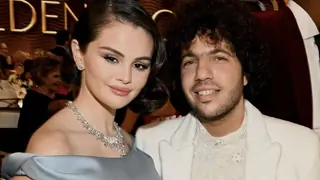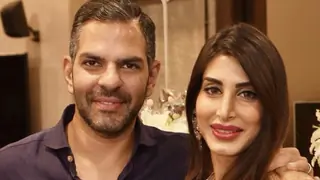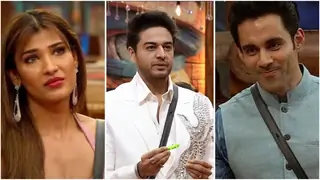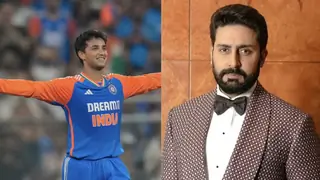Quote: Guardian
Child geniuses: What happens when they grow up?
You're the girl with the sky-high IQ, the boy who's amazing at maths' and then what? Patrick Barkham quizzes bright sparks past and present
Karina Oakley: 'As soon as she started talking, it was like this massive word explosion.' Photograph: Graeme Robertson for the Guardian
Patrick Barkham
The Guardian, Sat 15 May 2010 00.15 BST
Karina Oakley, 3, has an IQ that is, at 160, the same as Stephen Hawking's
"All of my horses are called Athena," announces Karina. Except for Sandy, that is, a small plastic creature with a wounded leg. Karina places Sandy in a bed she has made from Fuzzy Felt. "There you are, little horse. I'll give him some special horse medicine," she says. "Five lots of medicine. Now he's come back to play with his friends."
Karina is Charlotte Fraser's only child. They live, the two of them, with Truffles the cat, in Surrey. "As soon as she started talking, it was like this massive word explosion," Charlotte says. "Everybody she came into contact with would say, my goodness, how old is she?"
Charlotte thinks it is "a bit rotten" to compare Karina with friends' children "because they all develop in their own way and you don't wantto be this competitive mum". But after ahelper at the church creche noticed Karina's "incredible" imagination, Charlotte found achildpsychologist on the internet and, a year ago, took her daughter to London for an IQ test. "Karina has an unusual air of maturity in one soyoung," said Professor Joan Freeman and, inacareful report pointing out the shortcomings of IQ tests in very young people, suggested that she had an IQ of 160 ' said to be the same as Stephen Hawking's ' which placed her in the top 0.03% ofchildren of her age.
Asked in these tests what we do with our eyes,Karina said we put contact lenses in them. Shown a picture of a teapot without a handle andasked what was missing, she said the picnic mat. Shown a picture of a glove that was lacking one finger and asked what was missing, she said the other glove.
Charlotte found it "reassuring" to discover that Karina was not suffering from some "really weird way of thinking". She does not know from where her linguistic precocity comes: Charlotte was adept at science, she says, and Karina's father, Nick (from whom Charlotte is separated), was good at physics and maths.
Stories of home-schooled geeks scare her. "What every parent wants for their children istogive them a happy, balanced, enjoyable childhood. I don't think any adult is ever going togo, 'Damn, I didn't do my GCSEs aged nine'." SoKarina goes to a local nursery and spends much of her time "junk modelling". She shows off a chocolate tray, decorated with tissue and paper: a butterfly feeding table.
While Charlotte has a few reservations about this "child-led" learning ' "There's a bit of methat thinks it's a nursery, you're teachers, youcould be doing something more with her" ' she plans for Karina to attend her local primary school, along with her friends. "As she gets older,perhaps I will need to look at it again," Charlotte says. "Iguess I worry if she gets boredat school. Sometimes it doesn't come outas'bored' ' it comes out as causing trouble atthe back of the class."
Ishaan Yewale, 5, has memorised more than 600London bus routes
How long have you been a bus fanatic? "The last five years," says Ishaan, sitting in front of a laptop looking at Transport for London bus maps.
Jay and Sonali Yewale moved to London from Mumbai 10 years ago for Sonali's job at Citigroup. Jay is a business development manager for an ITcompany. Just over six months ago, their only child, Ishaan, developed a thing for London buses and memorised more than 600 bus routes across the capital. It was not easy for him, Jay says, because, while Ishaan has a reading age of at least seven, there were some difficult location names to read. The memorising bit came easily.
So far, Ishaan's talent has taken him on to BBC Breakfast and ITV News, but he hasn't found the media coverage too demanding. Where did his interest come from? Does he see buses from their south London flat? "I can see buses from other buses," Ishaan trills in a singsong voice. "I can see DLR trains from there," he points to the front window. "And I can see National Rail from the kitchen." He runs into the kitchen to demonstrate.
Which are best, buses or trains? "Buses," Ishaananswers incisively. What is his favourite bus route? "The whole world," he says, somewhat tangentially. Later, he clarifies: his favourite route is actually the 108 from Lewisham to Stratford, which he travels on to school. How many buses does he see from his favourite bus? Roughly, I say. It's a stupid question and I am not expecting an answer. "I only saw 17 today," he says. "Ten when going and seven coming back."
Every few months, Ishaan finds a new obsession. Cricket was one ' he learned to recognise virtually all the players in the IPL; Thomas the Tank Engine was another. His favourite engine is "Gordon, the biggest and the fastest. He goes at least 100mph. Other engines only go 50. And Thomas and Percy only go at 20. No, 25," he corrects himself.
His gentle parents seem rather bemused by their hyper-energetic little boy. He never wants togo to bed and has energy to burn at all hours. He is bilingual (he also speaks Marathi), and his school has run out of books for him. While his reading is good, he is among the worst at writing, Jay says. And if Ishaan doesn't like something, it'shard to get him to do it. Jay and Sonali were themselves both high achievers at Indian schools,which were far more competitive than Britishones. "But I think he's ahead of us," Jay says.
They are keeping an eye on whether the school can meet his needs. So far, they say, they've been happy, but "it's early days", Jay says.
Megan Ward, 10, is an inventor; her anti-smoking keyring is already in production
When Paula and Rory Ward are not running aplumbing and drainage company in Kent, they are busy marshalling the lives of their children, Alfie, six, Joe, eight, Charlie, 13, Steph, 19, and, squeezed in the middle, Megan, 10. While her home reverberates with footballing kids, sulky teens, three bounding dogs, a rabbit and a hamster called Spotty, Megan is quietly inventing. A year ago, she had to design an anti-smoking poster for a school project. Rather than a poster, she came up with the idea of creating a translucent, squidgy pair of lungs containing brown food colouring that shows the average amount of tar a smoker collects from just four packs of cigarettes.
"I like people to play with things more than read and write," she says. So she researched her idea on the internet, found a company in China that could make the device, saved up her pocket money and, with a bit of financial assistance from her mum, got her idea made. Paula helped her daughter get a patent and since then, anti-smoking consultancy Gasp has placed an order worth 12,000 for 25,000 of Megan's keyrings.
Megan is dyslexic. Paula says her daughter "thinks differently": she "prefers drawings and is obviously quite creative". Ideas pop into her mind when she watches TV. After she got sunburnt on holiday, Megan devised a small plastic bracelet that changes colour in the sun, telling you when to put on sunscreen, and a T-shirt that does the same thing. Several sunscreen companies have expressed an interest in the idea. "We were walking the dogs once and what did you come out with?" asks Paula. "A ball that could be filled with water and you called it Quetch ' like fetch! ' because it quenches a dog's thirst. But we didn't do anything with it. There's a lot we haven't done, but I backed her on the anti-smoking one because I thought, actually, Meg, it's good."
There is also Megan's idea for a dog collar containing a speaker so that owners can call their dog on the collar. Then she pulls out a picture of aspecial fishing rod she has designed. "There is acamera at the end of the rod, on the hook," she explains, "and it's waterproof, and the screen is on the handle, and it shows you if you've caught afish or not."
Megan goes to Girl Guides, doesn't want to go to university, and likes the inventor Trevor Baylis, trampolining, the film Marley & Me, Miley Cyrus and The BFG. She keeps her pink-and-cream bedroom immaculately tidy. Paula is amazed and a bit confused by her daughter, who is a quiet, yet also slightly demanding presence intheir hectic household. "Everything has to be routine," Paula says. "Her brothers and sisters go with the flow, but withMeg it's, 'What time will that behappening?' or, 'Where am I being picked up from today?' That's why, when she does enjoysomething, I encourage her. She needs a lotof encouragement."
Niall Thompson, 16, started a maths degree at Cambridge aged 15
"I was just normal in primary school," Niall Thompson says. Five years on, he started at Cambridge University aged just 15; the only child of a single mother from a family in which no one had ever gone to university.
His life changed in his first week at high school in Manchester. His maths teacher, Kate Parker, took him aside at the end of lessons and gave him an advanced textbook to try. He found it relatively easy, so Parker began teaching him after school, delaying her retirement by two years to help him. It was she who first suggested he try for Oxbridge. Classmates teased him, saying he and Parker were having a romance. "There were insinuations," hesays. "I'd like to point out that she was 60."
After picking up an A* in his maths GCSE in Year 8, he took his A-levels in Year 10. His mum worried he worked too hard at school. Did he feel he was missing out on normal teenage life? "Not often," he says. He was relieved to leave Manchester for Cambridge. "It's good not to stick out for once."
Niall does not look any younger than many other boyish first-years at Cambridge. When he arrived he was nervous: "But two weeks later I was absolutely fine." He can call his personal tutor, Martin Hughes, any time on his mobile phone. Hughes, along with everyone in Niall's hall of residence, had a Criminal Records Bureau check.
Two terms in, Niall has not socialised much yet. He went out only once during freshers' week because everything was based around drinking. "That was the main difficulty," he says, "although that really doesn't bother me at all. Everyone should be working anyway."
He has not joined any clubs or societies ("Irefused to join the Maths Society. If you're going to join a society, join a society that's different from what you'd be doing otherwise") and does not like sport, so instead he relaxes in his room. He is "never off Facebook", talking to Vicky, his best friend from home (although she's not in his good books right now after she posted on the internet some maths answers he gave her). He watches a lot of DVD boxsets ' Shameless, Catherine Tate and, especially, Doctor Who. With his piercings and love of Paramore, he is a bit of an emo kid. "I'm not ashamed," he says.
Niall will graduate from university before his peers even start it. This kind of fast-tracking occurs nowadays only in maths, according to Hughes, where there is a belief that you peak early, burn out young, and if you haven't made your mark by 21, you never will. When Niall was little, he wanted to be a train driver and then aConcorde pilot. Now he does not know what he will do at 18; he thinks he may need a year out.
He found the media attention when he started at Cambridge a bit weird. "Sometimes I think theywish I was 4ft nothing with Harry Potter glasses and no friends and no personality," he says of journalists who meet him. Does he feel uncomfortable being called a child prodigy or agenius? "I've got used to it. I feel like I'm in my rightful place. I'm surrounded by people who think you're good if you're good at maths, and it'snot considered strange."
Edited by Summer3 - 13 years ago





























